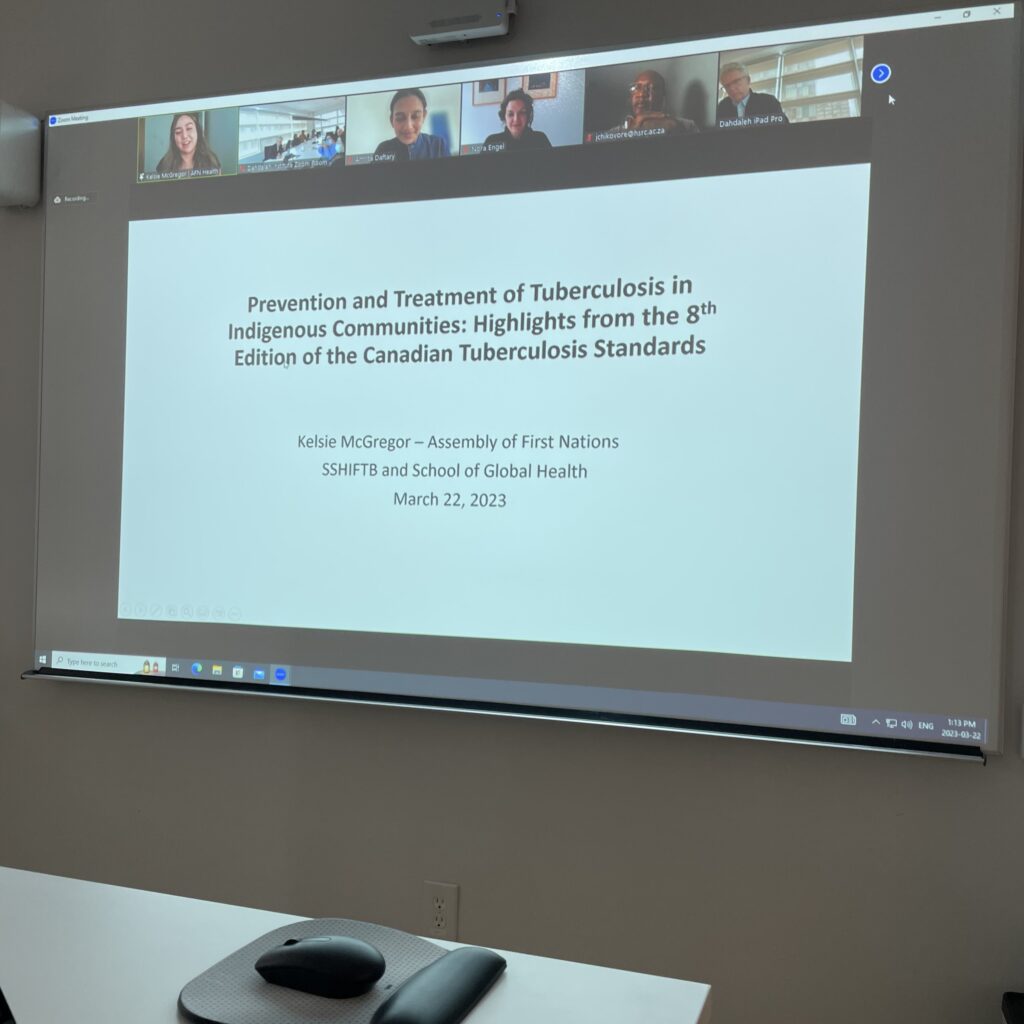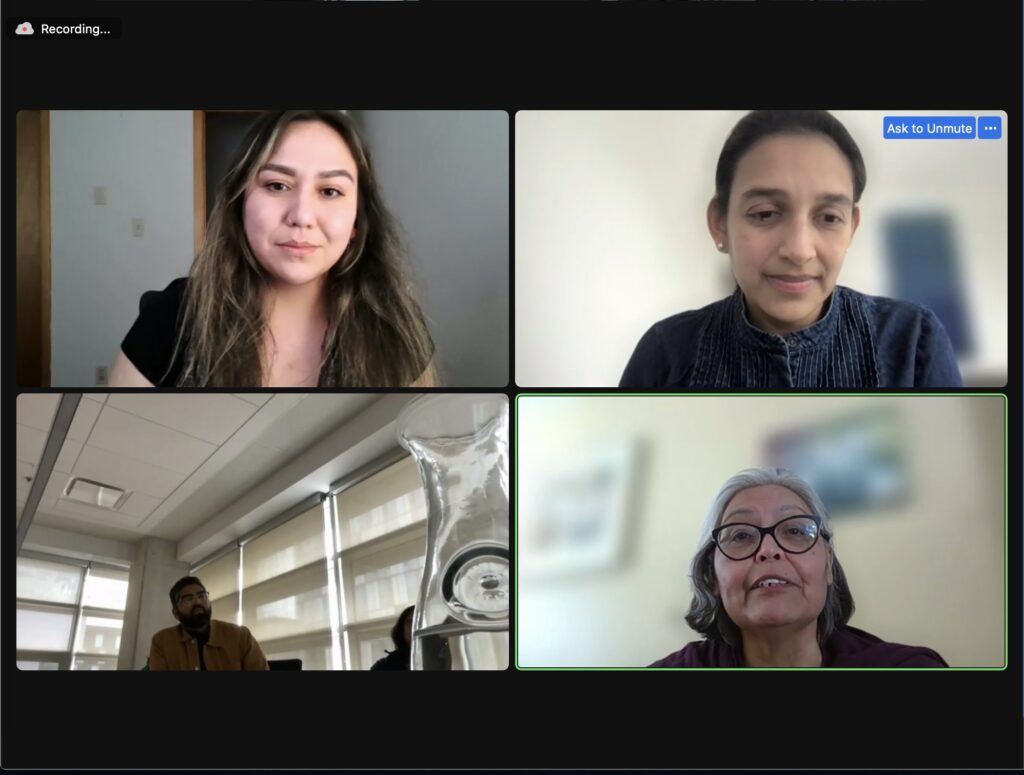Post
Published on April 12, 2023

In celebration of World Tuberculosis (TB) Day 2023: Yes! We Can #End TB! Faculty fellow and founder of the Social Science and Health Innovation for Tuberculosis Centre (SSHIFTB), Amrita Daftary, facilitated a seminar discussing how efforts to end TB can be strengthened by shifting attention to its structural drivers. Prof. Daftary stated that TB affects nearly 10 million people a year despite being preventable and curable. It is a leading cause of death caused by infectious disease.
Prof Daftary engaged three speakers at the webinar. Kelsie McGregor, a policy analyst with the Assembly of First Nations, delivered a keynote presentation. Kelsie began with an assessment of TB epidemiology in the three Indigenous Groups of Canada. Although Indigenous Canadians represent just under 5% of the Canadian population, they represent 19% of all people affected by TB. She provided historical colonial context and insight related to the emergence of TB in Indigenous communities, and linked its persistence to the aftermath of residential schools and poorly funded, understaffed health facilities.
Kelsie highlighted the latest Canadian TB Standards and their approach and inclusion of First Nations, Métis, and Inuit peoples. She emphasized the importance of reliable, up to date data, promotion of an indigenous community workforce and self determination, recognition of the connection of housing – among other social and structural factors - to TB rates, the need for additional resources for TB elimination, and address to the distinct issues facing each Indigenous community affected by TB. For the first time in the history of Canadian TB Standards, there is now a chapter devoted to building cultural competence about these issues in the Canadian health workforce. Kelsie was joined by Marlene Larocque, a senior policy advisor at the Assembly of First Nations, during the discussion.
Next, Stephanie Law, a postdoctoral fellow in epidemiology from McGill University, discussed the rising TB rates in Nunavik, Quebec and a video project that aims to mobilize and engage Nunavik youth to share their experience with TB care. The Nunavik Regional Board of Health and Social Services has been running TB campaigns since 2019. However, because of a history with mistrust and misinformation, these campaigns have not seen much success, especially among youth. Stephanie stressed the importance of community-led initiatives and participatory approaches. The videovoice method may help to increase awareness, engage youth and mobilize their leadership, allow for sharing of their experiences with TB, and use of their videos in training of TB community health workers.
Finally, Pushpita Samina, a project officer at SSHIFTB and PhD student at McMaster University shared a new collective database that streamlines finding academic resources and articles. SSHIFTB now offers quarterly newsletters that provides up to date information about TB social science research. They have also won research funds from SSHRC and the Brocher Foundation in Geneva, and contributed to several events and workshops in collaboration with international partners.
For more information please visit the SSHIFTB website: https://www.yorku.ca/dighr/project/sshiftb/ .
Watch the seminar presentation below:
Connect with Amrita Daftary.
Themes | Global Health & Humanitarianism, Global Health Foresighting |
Status | Active |
Related Work | |
Updates |
N/A
|
People |
Amrita Daftary, Faculty Fellow, Faculty of Health - Active
Pushpita Samina, Program Officer, Social Science & Health Innovations for Tuberculosis - Active |
You may also be interested in...
Update — Modelling Health Impacts of Climate Change in Malawi Through the Context of Cyclone Freddy
Malawi was ravaged by the month-long Cyclone Freddy, which caused widespread devastation and death. The Lake Chilwa basin settlements in south-eastern Malawi remain flooded following severe rains, posing higher risks from infectious diseases such as ...Read more about this Post
Research Fellow Syed Imran Ali Presented the Safe Water Optimization Tool at York’s Academia to Industry (A2I) Event
On June 15, at this unique in-person A2I event on current challenges in water sector research, Dr. Syed Imran Ali shared the Dahdaleh Institute’s experience with translating engineering and health research into practitioner-facing tools that help advance public ...Read more about this Post
Denis Mukwege Spurs Grads to Endeavour for Peace
Dr. Denis Mukwege, renowned obstetrician/gynecologist, Nobel Prize laureate and recipient of an honorary Doctorate of Laws from York University, called on Faculty of Health graduands to use their talent to fight injustice and care for ...Read more about this Post



